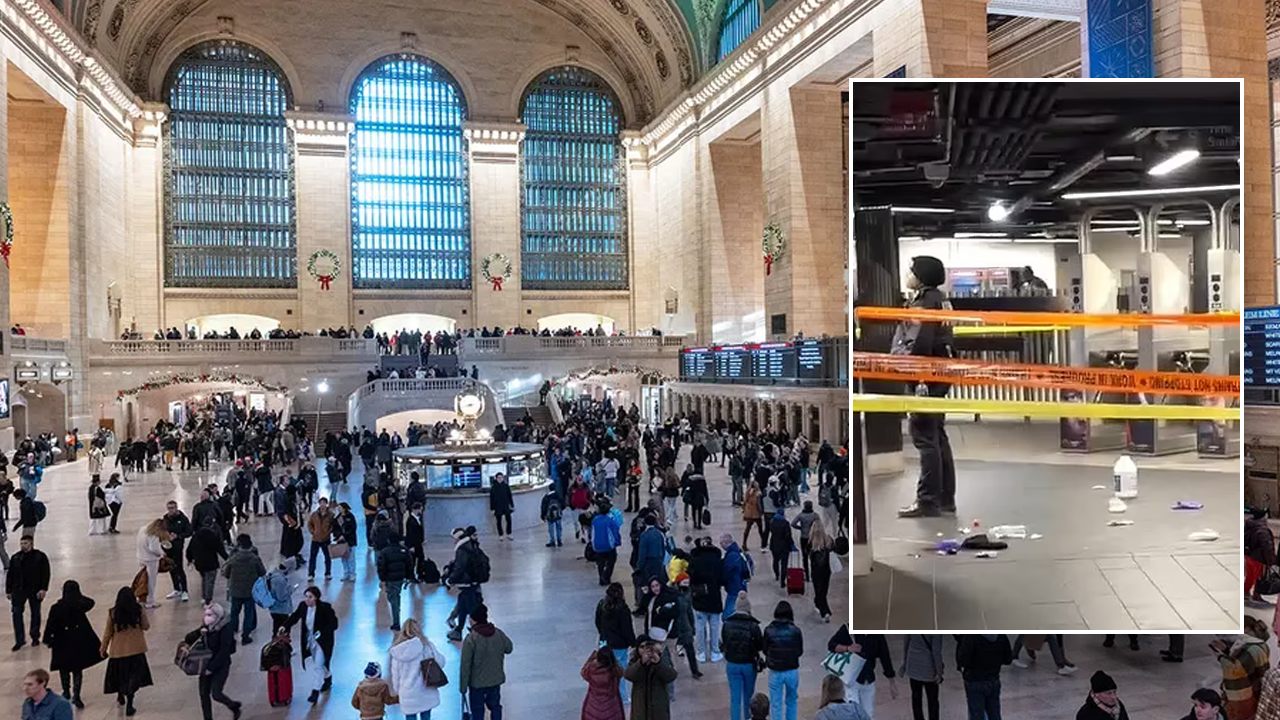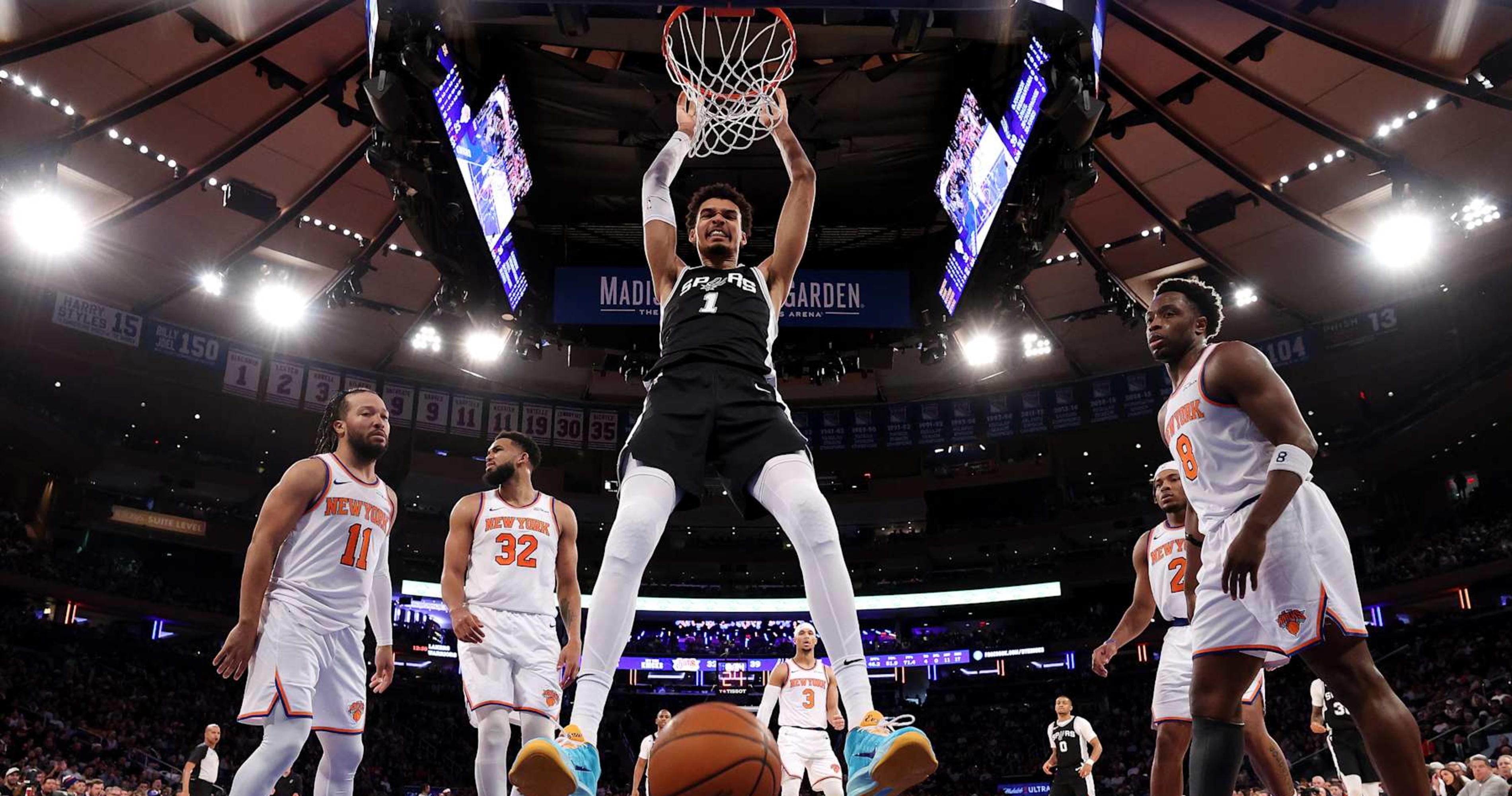NBA
Two Years Later, Knicks Won Donovan Mitchell Trade

Just over two years ago, the Utah Jazz had the New York Knicks singing the blues. But it turns out that avoiding the web of “Spida” might be one of the best things to ever happen to the franchise.
The basketball world is quietly yet thoughtfully acknowledging the two-year anniversary of one of the most impactful trades in recent memory, one that sent Donovan Mitchell from Salt Lake City to Cleveland, where the local Cavaliers were on the cusp of contention.
At the time of the trade on Sept. 1, 2022, many, including Mitchell himself, seemed to think a new tune awaited in Manhattan: the Knicks brand maintained a frequent prescience at the rumor mill as did that of the Empire State itself considering Mitchell’s status as both an Elmsford, NY native and the son of longtime New York Mets presence Donovan Sr.
Knicks management, however, reportedly balked at including its young, homegrown talents in the deal (i.e. RJ Barrett, Quentin Grimes) and removed itself from the proceedings, allowing the Cavs to pluck at Leon Rose’s ultimate target.
In the wake of Cleveland’s coup, many chastised the Knicks for not making the necessary sacrifices for the superstar they supposedly sought. Others viewed a long offseason of preparation, which more or less turned the spotlight over to imported newcomer Jalen Brunson, as rendered null and another sign of the continued dilution of the Knicks brand, one where grand offseason plans often give way to more modest solutions. The mentions, and even the posts, of Knicks fans frequently featured a pejorative meme of team president Leon Rose sleeping as a sign of the times in Manhattan basketball.
But sometimes a good night’s sleep is the first step to getting healthier.
Two years later, it’s hard to deny this Knicks victory, how inactivity has paved the way forward to the most rewarding exercise of all. Put aside the Knicks’ 4-1 series victory over Mitchell and the Cavaliers in the opening round of the 2023 playoffs, sweet as it was. By passing on Mitchell, the Knicks gained both immediate and future headache relief.
Consider the Cavaliers’ position entering the 2022-23 campaign: the team drastically overachieved, winning 44 games despite each of its top four scorers being no older than 24. The Play-In Tournament denied them immediately postseason glory but the Cavs were nonetheless armed with one of the NBA’s brighter futures.
But patience is a virtue and Cleveland forgot that at a crucial time: by trading for Mitchell (sacrificing a good part of that young yield and a good number of first-round picks), the Cavaliers hit fast forward on their rebuild and took on a heavier weight of expectations … expectations that have yet to be truly fulfilled.
Adding Mitchell was supposed to get Cleveland a key to the Eastern Conference’s penthouse, but the Cavs have been forced to settle for a pair of fourth-place finishes. The team hardly held a candle to the dictatorial Boston Celtics, quickly falling in a five-game set that was never truly in doubt.
Sure, Mitchell missed two games of the series due to injuries, but it was nonetheless a damning barometer of where Cleveland stands in the current Eastern landscape. Seduced by a return to the slightest form of contention (as well as its first LeBron James-free playoff series win since the heyday of “The Drew Carey Show”), Cleveland opened up its pocketbook for Mitchell yet again, sending a three-year, $150.3 million extension his way this offseason.
Taking advantage of rare serenity, the Knicks have made progress that is well-documented. By passing on Mitchell, New York basically bought itself two consequence-free years of steady world and culture-building, ones where Brunson proved that he was well-capable of headlining duties. Instead of pining for a superstar, the Knicks found they might’ve had one the whole time in Brunson, whom the team is now building around.
Things are going to drastically change this year, one where the Knicks are burdened with realistic goals and landmarks as they approach their final form. Losing in the second round won’t be cute in Manhattan anymore. But the relative lack of expectation partly brought about by passing on Mitchell’s services allowed the Knicks to peacefully build and develop rather than immediately placing all the weight on one new superstar and watching things crash and burn through the worst enemy of all: the rock and hard place of mediocrity
That period allowed potentially fatal moves for the Rose era: on paper, keeping the since-departed Barrett and Grimes over Mitchell admittedly seems like a ridiculous move that received little vindication, but Rose has serviceably salvaged his mistakes, flipping Barrett for the game-changing addition of OG Anunoby before dealing Grimes to Detroit in February.
While the Grimes deal did not pay off immediate dividends, he eventually turned one of the additions from the deal (Bojan Bogdanovic) into a potential final championship ingredient in Mikal Bridges as one of the major moves of the Knicks’ eventful offseson.
In hindsight, it’s easy to see why the Knicks were so reluctant to take the instant so-called solution: following their impressive showing in the shortened 2020-21 campaign, the Knicks put their hope and faith in Charlotte/Boston star Kemba Walker.
Had it not been for the Brunson breakout and calling in all his friends from Villanova to help clean up, the Knicks might still be trying to pull themselves out of such an ugly mire. Imagining how far Mitchell, a relatively young talent still pulling in nine-figure contracts, might’ve dragged them is an exercise no one was willing to engage in when Brunson was still a mystery box, one he has effectively destroyed through two seasons.
Of course, the stubborn realm of modern basketball criticism will likely only bestow the Knicks a victory on a mainstream basis if and when they hoist the Larry O’Brien Trophy. Those willing to give New York a more nuanced analysis will recognize that the Knicks are far closer to that lauded lift through shocking yet understandable inactivity.










